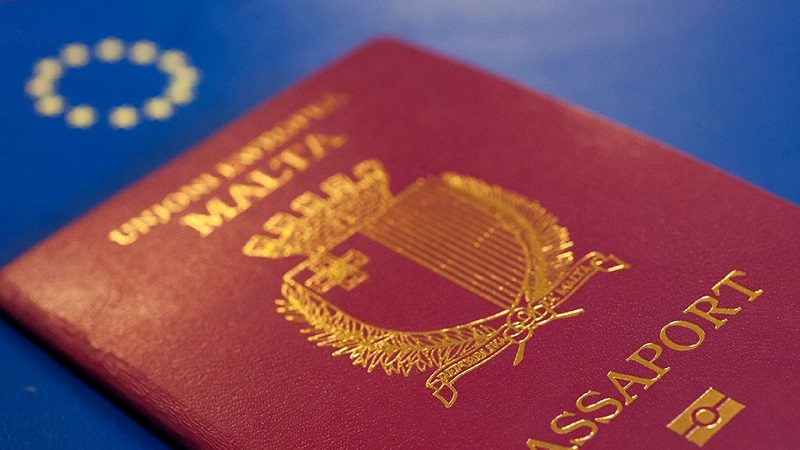Although Malta has granted citizenship to several hundred Russian nationals who have been obliged to invest in the country in return for their Maltese passports, Malta has only blocked €146,558 in Russian assets since the advent of EU sanctions over the invasion of Ukraine.
Statistics published by the European Union place Malta at the bottom of the EU table in terms of Russian assets being frozen across the bloc. Greece was second to last with €212,201 having been seized so far.
The European Commission wrote to member states on Thursday to remind them that the freezing of assets of sanctioned individuals and entities was mandatory, as was the provision of data about such seizures.
“However, the information provided and the frequency of updates remain uneven across member states,” the letter said. “This undermines our collective efforts.”
The European Union is currently considering proposals on how to use Russian assets frozen by member states to help pay for the reconstruction of Ukraine.
In all, the figures from Brussels show EU countries, led by Belgium and Luxembourg, have frozen €18.9 billion in assets belonging to Russian oligarchs and entities sanctioned over the war on Ukraine. 1,241 individuals and 118 entities are subject to asset freezes and entry bans in the European Union because of their role in Ukraine.
After Bulgaria and Cyprus closed their citizenship programmes, Malta remains the only state to have a citizenship-for-cash scheme but, given the rather minimal amount of asset seizures, it seems Malta doesn’t have much of an appetite to crack down on Russian assets in the country.
Hundreds of Russians have obtained Maltese passports since the programme’s inception in 2014 and Russians account for roughly a quarter of all the Maltese citizenships that have been sold.
And there could very well be assets in Malta to confiscate. In order to qualify for Maltese citizenship, applicants are supposed to spend at least one tax year residing in Malta and pay a flat €650,000 fee.
Over and above that, they were required to have made investments in Malta – mainly a €150,000 investment in government bonds and the purchase of property worth at least €350,000 or, alternatively, the more cost-effective option of leasing a property for a minimum of €16,000 a year for five years at a total of €80,000.
While Malta appears reticent to crack down on Russian assets in Malta, other EU member states have taken action against Russians with Maltese citizenship.
Most notable is the case of Yandex search engine founder Arkady Volozh, who is known for his close ties to the Kremlin and Vladimir Putin, who acquired Maltese citizenship in 2016.
The EU last June sanctioned Volozh over his actions related to the Russian invasion of Ukraine.
“As founder and CEO of Yandex, he is supporting, materially or financially, the Government of the Russian Federation and is responsible for supporting actions or policies which undermine or threaten the territorial integrity, sovereignty and independence of Ukraine,” the EU sanction cites.
The EU also accuses Yandex of “promoting State media and narratives in its search results, and de-ranking and removing content critical of the Kremlin, such as content related to Russia’s war of aggression against Ukraine.”
In its formal sanction notice, the EU notes how Russian state-owned banks such as Sberbank and VTB are Yandex shareholders and investors.
In 2019, when Volozh was enjoying the benefits of Maltese, and European Union, citizenship, the EU sanction cites how, “As founder and CEO of Yandex, he is supporting, materially or financially, the Government of the Russian Federation and is responsible for supporting actions or policies which undermine or threaten the territorial integrity, sovereignty and independence of Ukraine.
In September the Finnish authorities, acting on the EU sanctions seized his assets.
After that, a Dutch court ruled that squatters could effectively continue to stay at the multi-million-euro property he owns in Amsterdam because the Russian-Maltese citizen is under EU sanctions.
Volozh had taken court action after squatters occupied the building in October to have them evicted, arguing that the premises are being renovated, a valid reason to leave a building empty under Dutch property laws. The conversion project into luxury apartments began in 2020.
In its ruling, the court cited the EU freezing order and noted that the ongoing renovation work could lead to an increase in Volozh’s assets, and that if he planned to rent the apartments, that, too, would be banned under EU law.
Across the EU, Belgium leads the way with Russian asset seizures with €3.5 billion being blocked, followed by Luxembourg with €2.5 billion, Italy with €2.3 billion and Germany with €2.2 billion, according to EU statistics.
Ireland, Austria, France and Spain also seized over €1 billion euros each in sanctioned Russians’ assets according to data provided to the EU by 25 November.













A sad joke. Even for Malta.
If all the Russians in Malta have been given Maltese citizenship , then by Labour Standards there are no Russians. Only Ghost of Russians remain. Maybe Robert Abela’s villa was rented to Russians while cocooned in it, to become Maltese. Silkworm to Butterflies change at Identity Malta .
I just hope they read this in the Ukraine, Big Bob may be in line for an offer he can’t refuse!
heqq inkella kif ihalsuh a supervilla fiz Zejtun lil Abela ?
Considering Putin’s russia ongoing onslaught in Ukraine tantamounts to terrorism, it follows that his friends’ & enablers’ funds fall within the real scope of MLFT (and not tax evasion).
Thus, one would expect that the Malta FIAU comes clean on what it is actively & factually doing to effectively identify and freeze such funds.
But it seems that Maltese petty tax evaders are far less dangerous chaps to safely waste one’s time on.